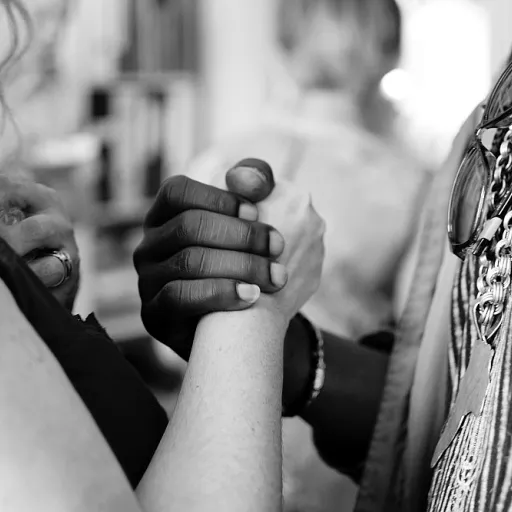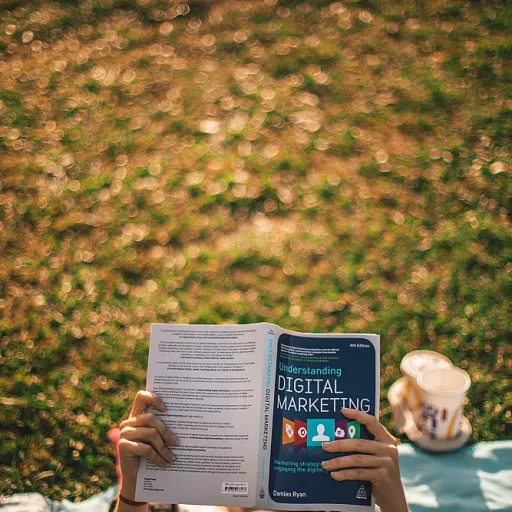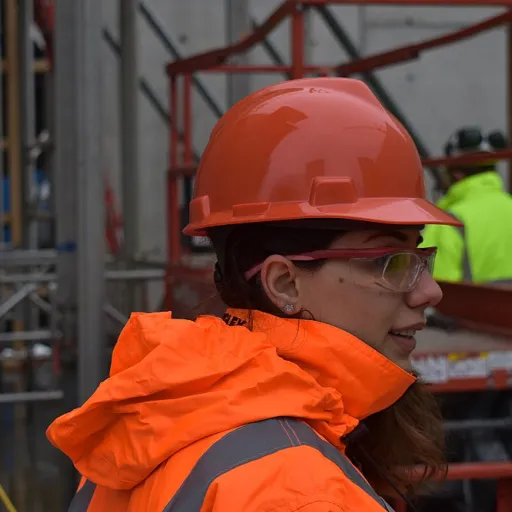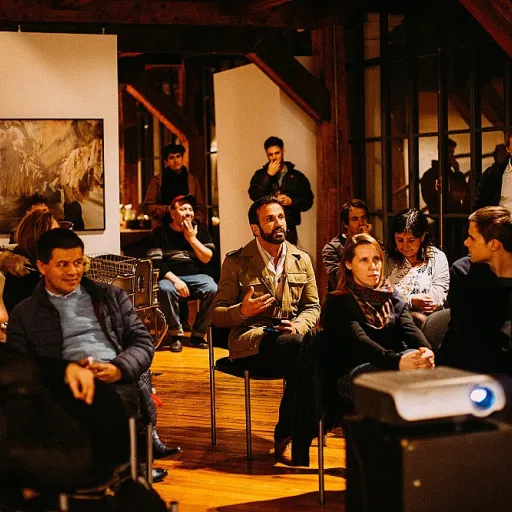
Understanding the influencer entry level remote landscape
Remote Influencer Roles: A Growing Entry Point in Marketing
The landscape for entry-level influencer roles has shifted dramatically in recent years. With the rise of remote work, companies in the United States, from New York to San Francisco and Los Angeles, are now recruiting talent for positions like marketing coordinator, social media manager, and influencer creator—often without requiring a physical presence in the office. This trend is especially strong in sectors like brand marketing, affiliate marketing, sports marketing, and public relations, where digital content and social engagement are core to business growth.
What Makes Remote Influencer Careers Unique?
Unlike traditional marketing or media jobs, remote influencer roles demand a blend of creative content production, digital communication, and self-motivation. Entry-level positions such as content creator, associate, or group coordinator often involve managing social media channels, collaborating with marketing managers, and supporting influencer marketing campaigns. The flexibility of remote work means talent can apply from anywhere in the United States, but it also requires strong digital communication skills and the ability to work independently day after day.
- Key responsibilities: Creating media content, supporting brand marketing, and engaging with audiences across platforms.
- Common job titles: Influencer, marketing coordinator, manager influencer, talent manager, media manager, and influencer creator.
- Industries hiring remotely: Marketing agencies, sports marketing groups, public relations firms, and affiliate marketing companies.
Trends and Opportunities in Remote Influencer Marketing
Remote influencer careers are not limited to large cities like New York or San Francisco. Companies across the United States are seeking creative professionals who can drive social media engagement and produce compelling content from anywhere. The demand for remote apply options has increased, making it easier for candidates to join teams as soon as a day ago. This shift is opening doors for a more diverse group of talent, including those who may not have considered a traditional office-based marketing role.
For those interested in understanding how these changes are shaping the future of work, exploring the future of the next workplace can provide valuable insights into evolving HR communication strategies and remote talent management.
Key communication challenges for remote influencer onboarding
Remote onboarding: communication gaps and cultural nuances
Remote influencer onboarding presents unique communication challenges for HR teams and marketing managers. Unlike traditional in-office roles, remote influencer creators and content creators often work from various locations such as New York, Los Angeles, San Francisco, or even across the United States. This geographic spread can lead to misunderstandings about company culture, expectations, and daily workflows. For example, a marketing coordinator or associate may interpret brand marketing guidelines differently depending on their previous experiences or local context.
Clarity and consistency in digital communication
One of the main hurdles is ensuring clarity and consistency when sharing information. Influencer marketing teams must provide clear instructions on campaign goals, social media content standards, and affiliate marketing strategies. Without face-to-face interaction, remote apply processes and onboarding materials must be comprehensive and accessible. HR coordinators and talent managers should use multiple channels—such as video calls, group chats, and shared documents—to reinforce key messages and answer questions in real time.
Building trust and inclusion from afar
Establishing trust is essential for remote influencers, especially when they join a new group or team. Managers and media managers need to foster a sense of belonging, even if team members are spread across different states or time zones. Regular check-ins, transparent communication, and opportunities for creative input can help remote talent feel valued and included. This is particularly important for roles like manager influencer, manager social, or public relations coordinator, where collaboration drives success.
Addressing feedback and engagement barriers
Remote onboarding can make it harder for new influencers to seek feedback or clarify doubts. Without the informal interactions of an office, questions about content, brand guidelines, or campaign objectives may go unasked. HR and marketing managers should encourage open dialogue and provide structured opportunities for feedback, such as virtual Q&A sessions or dedicated feedback forms. This approach supports both the influencer’s growth and the brand’s reputation.
For more insights on fostering engagement and overcoming communication barriers in remote teams, explore this resource on enhancing employee engagement through workplace forums.
- Remote onboarding requires clear, consistent communication across multiple channels
- Building trust and inclusion is key for remote influencer success
- Structured feedback opportunities help overcome engagement barriers
Building engagement and motivation from a distance
Fostering Connection in a Distributed Team
Remote influencer marketing teams face a unique challenge: building engagement and motivation when everyone is working from different locations, sometimes across the United States, from New York to Los Angeles or San Francisco. Without the daily in-person interactions of a traditional office, HR communication must be intentional and creative to keep talent connected and inspired.
- Regular touchpoints: Schedule frequent check-ins between managers and influencers, whether they are content creators, marketing coordinators, or associate talent managers. These touchpoints help maintain a sense of belonging and provide opportunities to share feedback and celebrate wins.
- Transparent communication: Use clear channels for sharing updates on brand marketing campaigns, affiliate marketing performance, and social media trends. This transparency helps remote teams feel united and aligned with group objectives.
- Recognition and rewards: Publicly acknowledge creative achievements, whether a media manager’s successful campaign or an influencer creator’s viral content. Recognition can be shared in group chats, newsletters, or virtual meetings, reinforcing motivation and loyalty.
- Inclusive virtual culture: Organize online events, workshops, or social sessions to help remote employees connect beyond work tasks. This can include virtual coffee breaks, content brainstorming sessions, or even sports marketing trivia games to build camaraderie.
HR professionals and managers must also adapt their approach to suit the fast-paced nature of influencer marketing. Roles like marketing manager, manager influencer, or public relations coordinator require flexible communication strategies to engage talent who may be working on different schedules or projects.
For more strategies on how HR can unlock the potential of remote influencer teams, check out this guide on unlocking the potential of HR marketing.
Supporting mental well-being and work-life balance
Prioritizing Mental Health in Remote Influencer Teams
Remote work has opened new opportunities for talent across the United States, from New York to San Francisco and Los Angeles. However, influencer marketing roles—whether as a content creator, marketing coordinator, or media manager—can blur the lines between work and personal life. This is especially true for those who apply for remote positions and join distributed teams, often without the daily social interactions found in traditional offices.
- Isolation and Burnout: Influencers and creative associates working remotely may feel isolated. The constant demand for fresh media content and the pressure to maintain an online presence can lead to burnout. Managers and HR coordinators should encourage regular check-ins and foster group discussions to help remote creators stay connected.
- Setting Boundaries: The flexibility of remote work is appealing, but without clear boundaries, work can spill into personal time. HR should provide guidance on setting work hours and encourage influencers to take breaks, especially during high-demand campaigns in affiliate marketing or sports marketing.
- Access to Support: Providing access to mental health resources is essential. Talent managers and marketing managers can share information about counseling services or wellness programs. This support should be communicated clearly in onboarding materials and reinforced during regular team meetings.
- Recognition and Motivation: Remote influencers, whether in public relations or brand marketing, need to feel valued. Regular feedback and recognition from managers help maintain motivation and reduce stress. Acknowledging achievements, even in small ways, can boost morale and foster a sense of belonging within the group.
By addressing these challenges, HR professionals can support the well-being of remote influencer teams and help them thrive in the fast-paced world of social media and influencer marketing. A proactive approach to mental health not only benefits individual creators but also strengthens the overall effectiveness of remote teams in the United States and beyond.
Performance management and feedback for remote influencers
Effective Feedback Loops in Remote Influencer Teams
Performance management for remote influencers in marketing and social media roles is evolving. The traditional office-based review process does not always translate well to remote, distributed teams. Influencer creators, content creators, and marketing coordinators working from cities like Los Angeles, San Francisco, or even across the United States need clear, ongoing feedback to thrive.
- Regular check-ins: Managers and talent managers should schedule frequent, structured conversations. This helps influencers and associates feel connected and supported, even if they applied for remote roles only a day ago.
- Transparent criteria: Define what success looks like for each remote influencer, whether they focus on affiliate marketing, brand marketing, or public relations. Clear expectations help reduce confusion and boost motivation.
- Two-way communication: Encourage influencers to share their challenges and creative ideas. This is especially important for those in content or media manager roles, as their insights can shape group strategies and improve campaigns.
Tools for Measuring and Communicating Performance
Remote apply processes have made it easier to hire talent from across the United States, but managing performance from a distance requires the right tools. Many organizations use digital dashboards to track metrics for influencer marketing campaigns, social media engagement, and content creator output. These platforms allow managers, coordinators, and associates to view progress in real time, making feedback more actionable.
| Role | Key Performance Indicators | Feedback Frequency |
|---|---|---|
| Influencer Creator | Engagement rate, content reach, affiliate sales | Weekly |
| Marketing Coordinator | Campaign delivery, collaboration, reporting | Bi-weekly |
| Media Manager | Brand consistency, media content quality | Monthly |
Supporting Growth and Recognition
Remote influencers and marketing managers need to feel valued to stay engaged. Recognition can be as simple as a public shout-out in a group chat or as formal as a quarterly review. For those working in sports marketing or public relations, celebrating wins and sharing constructive feedback helps build a sense of belonging, even from a distance.
By focusing on clear communication, regular feedback, and transparent performance metrics, HR professionals and managers can support the unique needs of remote influencer teams—whether they are based in New York, San Francisco, or anywhere across the United States.
Tools and technologies for effective HR communication
Choosing the Right Communication Platforms
For remote influencer teams, selecting the right tools is crucial. HR managers, marketing coordinators, and talent managers need platforms that support real-time updates, feedback, and collaboration. Tools like Slack, Microsoft Teams, and Zoom are widely used for daily check-ins and project discussions. For influencer marketing campaigns, platforms such as Asana or Trello help manage content calendars and deadlines, keeping everyone aligned from New York to San Francisco or Los Angeles.
Streamlining Content and Feedback Flows
Remote apply processes for influencer and content creator roles often involve multiple stakeholders, including media managers and brand marketing associates. Shared drives like Google Workspace or Dropbox enable seamless sharing of creative assets and social media content drafts. Feedback tools such as Loom or Miro allow managers to provide clear, visual input on media content, which is essential for remote teams working across the United States and beyond.
Enhancing Engagement with Social and Affiliate Marketing Tools
Maintaining motivation and engagement from a distance can be challenging. Integrating social media management tools like Hootsuite or Sprout Social helps influencer creators and marketing managers track campaign performance and celebrate wins together. Affiliate marketing platforms also provide real-time analytics, which supports transparent communication between managers, creators, and coordinators. This data-driven approach helps teams stay connected and focused on shared goals, whether they are based in San Francisco, Los Angeles, or working fully remote.
Ensuring Well-Being and Work-Life Balance
Supporting mental well-being is as important as managing performance. HR communication platforms like Officevibe or TinyPulse allow remote influencers and marketing associates to share feedback anonymously, helping managers identify stress points early. These tools can be integrated with existing HR systems to monitor engagement and support a healthy work-life balance for talent across different time zones, from New York to the West Coast.
Best Practices for Implementation
- Choose platforms that integrate with your existing HR and marketing systems
- Train all team members, from content creators to manager influencers, on tool usage
- Set clear guidelines for communication frequency and channels
- Regularly review tool effectiveness and adapt to the evolving needs of your remote group
By leveraging the right technologies, HR teams can support remote influencer onboarding, engagement, and performance management, ensuring that every associate, coordinator, and creator feels connected and empowered, no matter where they are in the United States.













